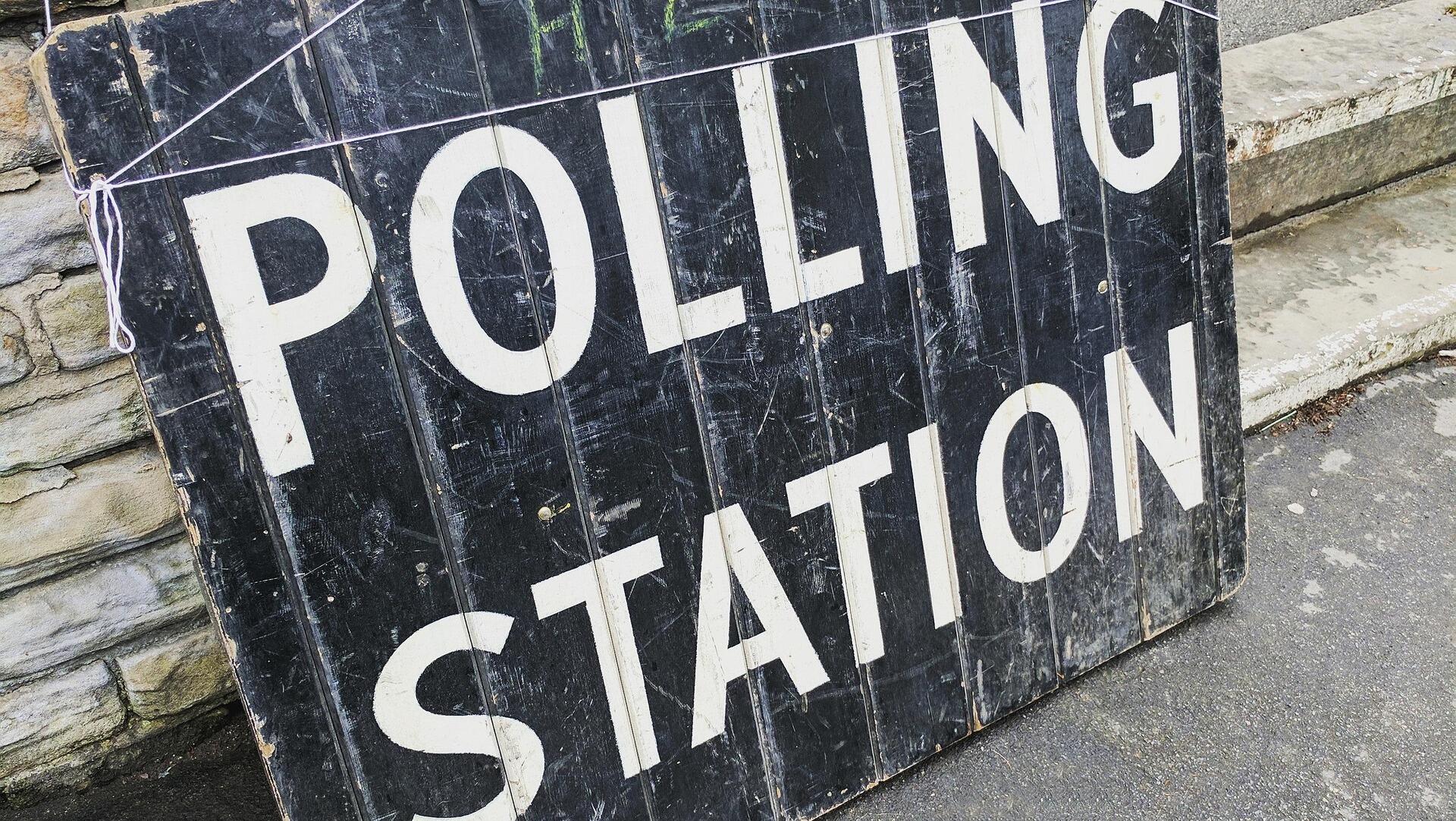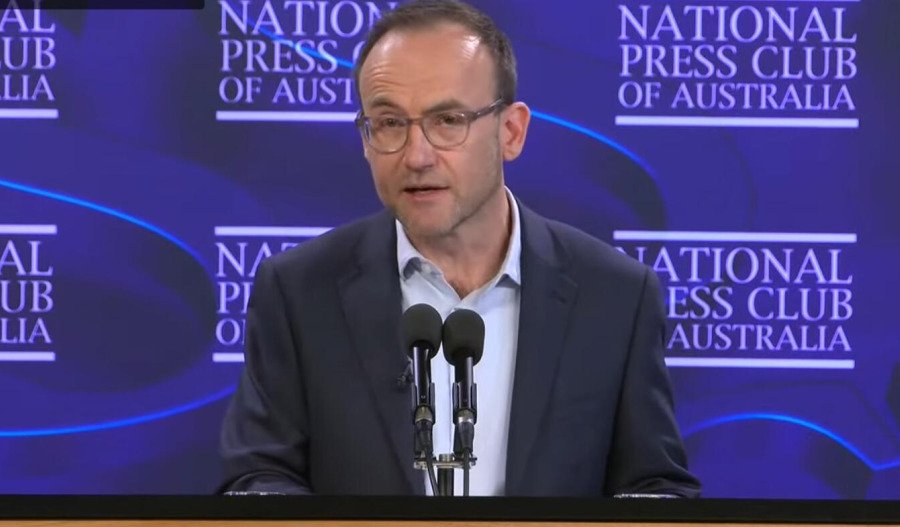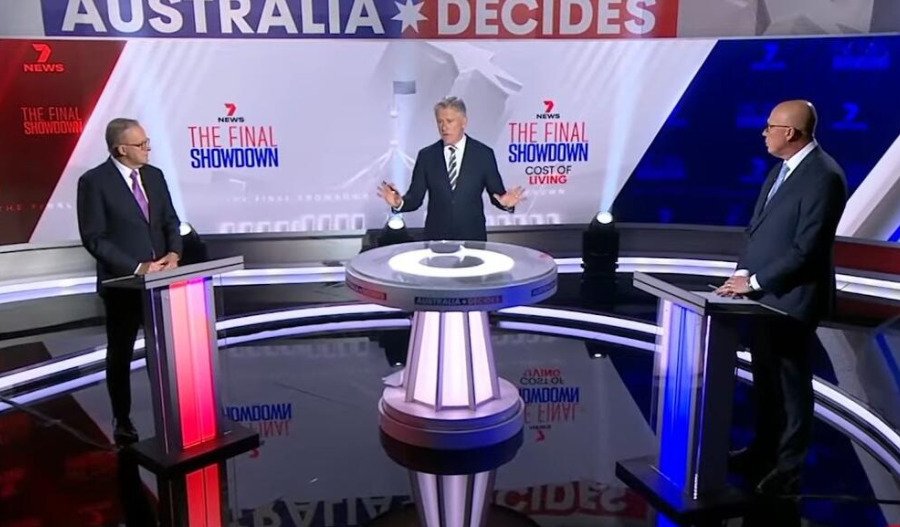Given that it only comes around every three years and tends to frame the country’s economic and policy outlook, Australia’s federal election should by default be the biggest-game-in-town.
However, given the spate of recent global events, it’s easy to conclude that the vote to elect another government in Canberra is less important to Australians than what’s happening internationally.
Admittedly, no election - here or abroad - plays out without the impact of international events.
However, in this federal election, the threat to the international trading order imposed by the United States administration’s trade tariff mayhem, is less of a backdrop, and more of a main event.
Then there’s the fallout from the Middle East and Ukraine wars which continue to materially impact global markets.
At face value, both events may have far more far reaching consequences for Australians than whether the next Lodge resident wears a blue or red tie.
U.S. President Donald Trump's ubiquitous presence transcends national boundaries.
Nowhere does the Trump-factor have a greater presence right now than in Canada. Liberal leader and Prime Minister Mark Carney called a snap election to secure a strong mandate to ward off Trump’s desire for the country to become America’s 51st state.
Reframing political debate
Admittedly, closer to home, Trump isn’t as directly in the face of Australian voters as he is to their Canadian counterparts.
However, the Trump effect on Australian politics is still alive and kicking.
According to Jill Sheppard, an expert in politics at the Australian National University, the potential knock-on effect of Trump’s tariffs on the Australian economy could only be one of many impacts.
Based on Sheppard’s observations, Trump is changing how political debate in Australia is framed in two key areas.
As we all know, Australia isn’t a major exporter to the U.S.
However, she says the potential knock-on effects resulting from China's response to U.S. tariffs and how an inbound government would deal with them are clearly on the minds of the electorate.
"We are sitting tight to see if China retaliates in any way and how that would affect our local industries [in Australia], and in turn, potentially affect the election," Sheppard said.
"I think all of these huge countries are showing more willingness to try to meddle in policies right before an election."
Parallels to the US
Tariffs aside, Sheppard can also see some parallels between the Trump administration's alacrity and willingness to turn in its own institutions, and the growing appetite to do the same locally.
What she’s alluding to is the unprecedented interest displayed by an Australian federal party leader – notably Coalition leader Peter Dutton - in taking a razor to certain Australian institutions.
For example, Dutton has expressed plans to slash 41,000 public service jobs, a move that appears to mirror manoeuvres by Trump's head of the Department of Government Efficiency (DOGE) the highly unpopular multi-billionaire Elon Musk.
When certain entities – including [former prime minister] John Howard - refer to Dutton as sounding very Trumpian, it’s not meant to be a compliment.
Unsurprisingly, she believes the comparisons to Trump are likely to do Dutton a "little bit of harm” yet make no difference to many Liberal voters.
"In terms of setting the political agenda, Trump is having a massive impact,” said Sheppard.
"If you are someone [who] doesn't like Trump, you probably don't really like Peter Dutton either."
Non-alignment with Trump
Meanwhile, Sheppard doesn't expect the Labor Party to change its policies to embrace 'Trumpism'.
However, to the extent that not leaning into Trump does little to foster a better relationship with the U.S. administration, she suspects a re-elected Labor government could be left at a slight disadvantage.
"I don't think they want to be at all aligned with the people in the office in the US at the moment, but it does mean that you can't get on the phone necessarily and talk about tariffs," she said.
Decoupling from America
According to Sheppard’s counterpart, Zareh Ghazarian, a political scientist at Monash University, Australian leaders will likely be judged on how they react to Trump's decisions by advancing their own agendas.
Ghazarian believes the Trump factor has elevated previously marginal issues – like buying Australia-made goods – to the forefront of national debate.
However, Ghazarian concedes that chronic shortages during the Covid outbreak brought home to Australians the need to reduce dependence on other countries.
“[These trade issues are] often talked about in terms of economics and they're often talked about in terms of being very sceptical of what free trade may mean for the nation," Ghazarian said.
Trade issues aside, Ghazarian believes dialogue around all-things-woke, the role and extent of foreign aid, plus gender and identity have also been influenced by Trump's rhetoric.
"[They] are potentially being picked up by those who have similar sorts of feelings in Australia."
While Trump may appear to be the dominant figure in global politics, Ghazarian reminds voters that other historical figures like [former U.S. president] Ronald Reagan and former UK prime minister Margaret Thatcher were also influential in shaping the economy and reducing the size of governments.
Centre-right support is dwindling
Australia, and Canada – which just went to the polls, have witnessed stunning collapses in polling numbers for centre-right parties.
The unexpected victory by Canada’s liberal party today only adds to growing speculation that Donald Trump poses big problems for centre-right candidates like Dutton.
"It's really interesting having these two elections running in parallel," said Ben Wellings, a senior lecturer in politics at Melbourne's Monash University.
"There was a sense after Trump's election that he was at the head of a disruptive right-wing wave, and that this was great for the right everywhere. It hasn't turned out that way."
Here in Australia, while early voting favours Labor (53%) over the Coalition’s 47%, like in Canada, the prospect of a hung parliament - requiring the support of independents to form a government - remains a likely outcome.
Should this outcome occur, it will invariably make legislation more challenging to pass, and by default make trade negotiations with the U.S. more problematic.
According to an Essential poll, more people have switched their support to Labor in recent weeks. Two-thirds of Australians say they’re voting based on who will leave them better off in three years.



